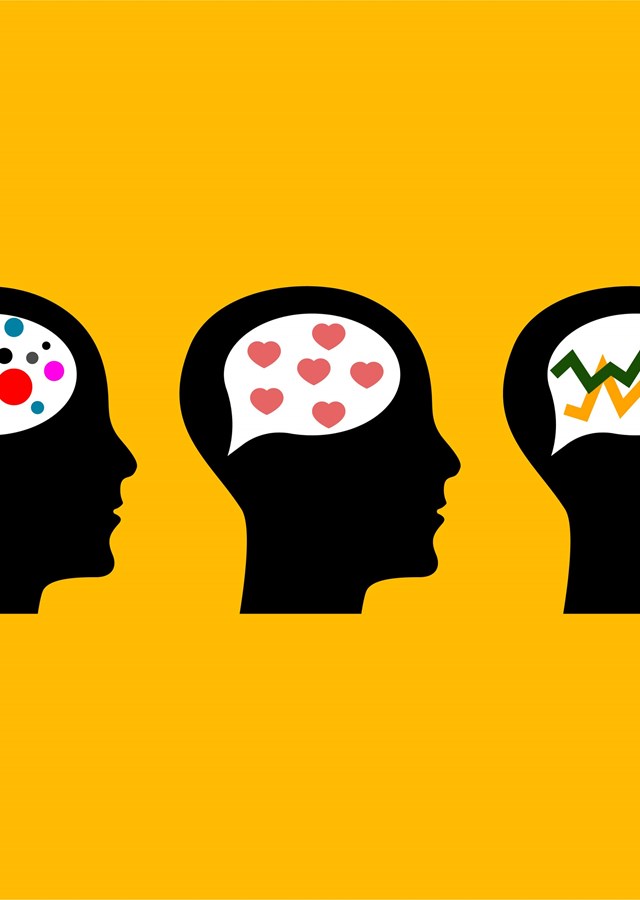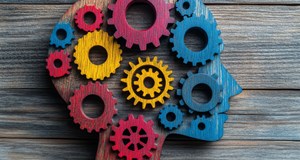Neurodiversity: Understanding, identifying & thriving with brain differences
Neurodiversity refers to the natural variation in how human brains think, learn, process information, and experience the world. Conditions such as autism, ADHD, dyslexia, dyspraxia and others are simply part of human diversity - not faults, failures, or things to “fix.”
What causes neurodivergence?
There is no single cause. Most forms of neurodivergence arise from a combination of factors:
- Genetics: Differences can run in families.
- Brain Development: Natural variations in structure, wiring, and chemistry.
- Environmental Influences: Pregnancy, birth, and early-life experiences.
- Multiple Factors Working Together: Most differences don’t have one identifiable cause.
Did you know?
Neurodivergence is a normal part of human variation - not a disorder that needs explaining or justifying.
Types of Neurodivergence
|
Type |
Description |
|---|---|
|
Autism / Autism Spectrum Condition (ASC) |
Differences in communication, sensory experience, routines, processing, and focused interests. |
|
ADHD (Attention Deficit Hyperactivity Disorder) |
Variations in attention, regulation, executive functioning, activity levels, and focus patterns. |
|
Dyslexia |
Differences in reading, language processing, phonological awareness, and working memory. |
|
Dyscalculia |
Challenges with numbers, sequencing, time concepts, and mathematical reasoning. |
|
Dyspraxia / DCD (Developmental Coordination Disorder) |
Affects coordination, movement, spatial awareness, planning, and organisation. |
|
Tourette Syndrome & Tic Disorders |
Involuntary movements, sounds, or vocalisations (tics) that vary in intensity and frequency. |
|
Sensory Processing Differences / Highly Sensitive Person Traits |
Increased or reduced sensitivity to sensory input such as sound, light, textures, or movement. |
Common Overlap:
It’s very common for people to experience more than one type (e.g., ADHD + dyslexia, autism + dyspraxia).
Getting a diagnosis (or exploring without one)
Self-Identification
Many people start by learning about their traits, patterns, strengths and challenges. You don’t need a diagnosis to explore what works for you.
Speaking to a GP
If you’d like a formal assessment, your GP can:
- Listen to your concerns
- Talk through symptoms and experiences
- Offer screening questionnaires
- Discuss assessment options and referrals
Your rights when seeking assessment (England)
If you live in England and the NHS waiting time for an assessment is long, you may have a “Right to Choose” your assessment provider. Ask your GP if you are eligible and which providers can offer the assessment you need.
Tip: Keep copies of referral letters and correspondence - these help when accessing your rights.
While waiting
In many areas, waiting lists can be lengthy. During this time, you can:
- Access self-help tools
- Use workplace or education adjustments
- Join support groups or online communities
- Explore coaching or therapy if helpful
After diagnosis (or without one)
- Learn about your neurotype
- Identify strengths & support needs
- Ask for adjustments at work or school
- Consider occupational therapy, coaching, or peer support
- Build personalised strategies for wellbeing
Important:
A formal diagnosis is not required to request adjustments or access many forms of support.
Challenges neurodivergent people may face
- Sensory overload or sensitivity
- Executive function differences (organisation, planning, time management)
- Social communication differences
- Fatigue, burnout, or masking
- Stigma, misunderstanding, or stereotypes
- Long waits or costs for assessment and support
Key Point:
These challenges often come from inaccessible environments, not from the person themselves.
Strengths & what neurodivergent people bring
Many neurodivergent people have exceptional strengths, including:
- Creativity and lateral thinking
- Deep focus and passion for interests
- Strong problem-solving or pattern recognition
- Innovation and out-of-the-box thinking
- High empathy, diligence, or attention to detail
Neurodivergence can be an incredible asset - in life, education, and work.
Neurodivergence & disability
Some forms of neurodivergence meet the definition of disability. “Disability” isn’t a negative label - it simply means someone may experience barriers in certain environments.
A recognised disability can help you:
- Access legal protections (e.g., Equality Act 2010)
- Request reasonable adjustments
- Receive financial support like Access to Work
- Advocate for your needs more easily
- Focus on your strengths as you build strategies that work for you
Examples of reasonable adjustments
- Flexible working hours
- Quiet or sensory-friendly workspace
- Noise-cancelling headphones
- Clear written instructions instead of verbal
- Extra processing time
- Breaking tasks into smaller steps
For employers
A neurodiverse team can bring:
- Greater innovation
- Fresh approaches to problem-solving
- Higher creativity
- Richer perspectives and improved team culture
Tip:
Disability is often about the fit between a person and their environment. With the right support, neurodivergent people can thrive.
Resources & support
If you need help, we’re here.
- Reach us at www.ben.org.uk/gethelp
- Access neurodiversity programmes on SilverCloud (sign up using the code: ben)
- Explore trusted organisations for further information:
- ADHD UK – Guides, tools, and adult screening
- British Dyslexia Association – Resources, helplines, assessments
- National Autistic Society – Diagnosis advice, support, community
- Neurodiversity Celebration Week – Events, campaigns, learning materials
Many organisations also offer helplines, local meet-ups, webinars, and online communities.
Final thoughts
Neurodiversity is part of what makes humanity rich, creative and resilient. Whether you are exploring your own traits or supporting someone else, remember:
You do not need a diagnosis to belong.
You do not need permission to seek support.
Your brain is not a problem - it’s a variation.
We’re here every step of the way.







